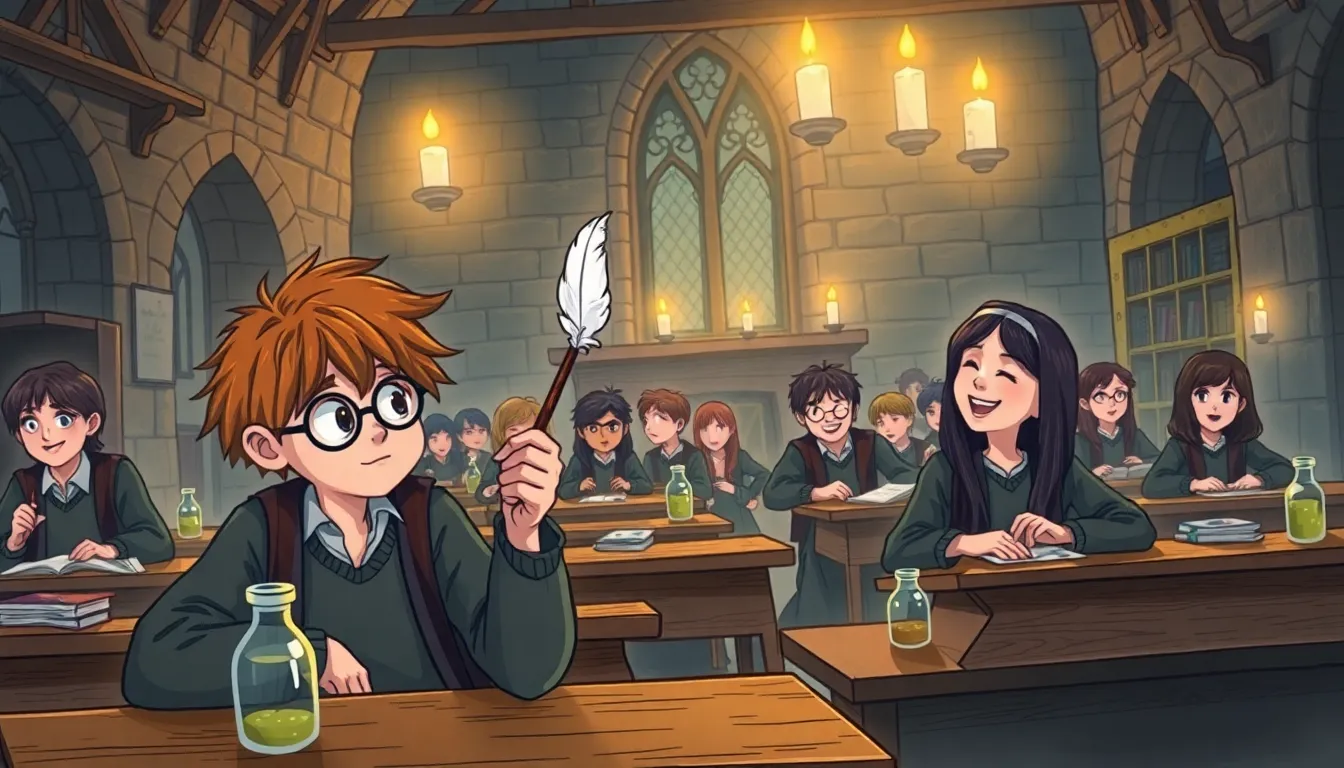Table of Contents
ToggleWands at the ready! The enchanting world of Hogwarts is filled with spells that can make you feel like a wizard or witch straight out of a storybook. From levitating objects to conjuring fire, these magical incantations are more than just fancy words—they’re the keys to unlocking a universe of wonder and mischief.
Overview of Hogwarts Spells
Hogwarts spells serve as foundational elements in the wizarding world. These incantations range from simple charms to complex curses, each with unique effects. Practicing these spells enhances a wizard’s or witch’s proficiency in magic.
Numerous categories exist for spells, including charms, hexes, jinxes, and curses. Charms, like the Levitation Charm (Wingardium Leviosa), enable users to manipulate objects. Hexes and jinxes act as minor dark spells that may cause harmless annoyance or obstacles, while curses hold stronger, more dangerous powers.
Understanding spell components is vital. Most spells require specific wand movements, incantations, and intent. For instance, the Disarming Charm (Expelliarmus) disarms opponents with a precise swish and flick of the wand. The effectiveness of a spell often depends on the caster’s skill level, concentration, and emotional state.
Some spells are taught in specific year courses at Hogwarts. First-year students learn fundamental spells, such as the Summoning Charm (Accio), which attracts objects to the caster. As students advance, they encounter more intricate spells like the Patronus Charm (Expecto Patronum), designed to repel dark creatures.
Familiarity with spells fosters a deeper connection to the magical community. Wizards and witches utilize these incantations in daily life, from simple household tasks to complex dueling situations. Each spell enriches their magical repertoire, enabling further exploration of the enchanting world.
Studying Hogwarts spells offers insights into the intricacies of magic. Knowledge of spells, their purposes, and their applications prepares students for various challenges in the wizarding realm. Hermione Granger, for example, exemplifies the importance of study, excelling in spell work through diligence and understanding.
Experience in casting spells leads to personal growth and discovery. Hogwarts spells empower individuals, allowing them to navigate a world filled with wonders and surprises.
Categories of Spells

Hogwarts spells are categorized into distinct types, each serving unique purposes. Understanding these categories enhances a wizard’s or witch’s proficiency in magic.
Charms
Charms cast beneficial effects. For example, the Levitation Charm (Wingardium Leviosa) allows objects to float. Charms require specific wand movements and incantations. Practice ensures mastery of these spells. Students often learn charms early in their studies, as they form the basis of practical magic.
Hexes
Hexes typically create minor inconveniences. The Bat-Bogey Hex offers a vivid illustration, causing disarray for the target. Though hexes are generally mischievous, they can escalate quickly. Learning hexes cautions students about the ethical implications of magic. These spells demand precision and focus for effective casting.
Jinxes
Jinxes inflict disruptions or mishaps. An example is the Tickling Jinx, which induces uncontrollable laughter. Such spells are often used in playful scenarios. Practitioners must be cautious with jinxes, as unpredictability can result. Mastery of jinxes adds depth to a wizard’s skill set.
Curses
Curses possess darker, more harmful effects. The Cruciatus Curse (Crucio) illustrates a profound level of malevolence. Knowledge of curses highlights the serious nature of certain magic forms. Familiarity with these spells is crucial for understanding magical ethics. Practicing responsible spellcasting is imperative when studying this category.
Notable Hogwarts Spells
Hogwarts spells play a vital role in the magical education of students. Each spell possesses distinct characteristics and uses.
Lumos
Lumos creates light at the tip of the wand, illuminating dark spaces. This charm, essential for exploration, helps wizards and witches navigate during nighttime adventures. With a simple incantation, the wand emits a bright beam, similar to a flashlight. Practicing this spell encourages students to master precise wand movements, ensuring consistent light output. The charm’s versatility extends beyond mere illumination; it brings comfort and security during daunting situations.
Expelliarmus
Expelliarmus disarms opponents by forcing them to release their weapons. Frequently used in duels, this spell neutralizes threats without inflicting harm. With proper technique, a wizard can cast this charm swiftly, turning the tide of a confrontation. Students often emphasize the importance of intent behind the incantation, as the spell reflects the caster’s desire to protect rather than to cause injury. Mastery of Expelliarmus showcases a wizard’s skill in defensive magic.
Expecto Patronum
Expecto Patronum conjures a protective Patronus to fend off dark forces like Dementors. Each Patronus takes a unique form, often reflecting the caster’s personality. Training involves recalling happy memories, which fuel the spell’s effectiveness. Students learn that a strong Patronus represents emotional resilience and personal strength. Utilizing this charm in dire situations symbolizes hope, offering comfort in the face of despair. A well-cast Patronus becomes a powerful ally, embodying the light against overwhelming darkness.
How to Learn and Master Spells
Learning spells at Hogwarts requires dedication and effective study techniques. Effective methods involve reading core textbooks and engaging with supplementary materials to deepen understanding. Group study sessions enable collaboration, allowing students to discuss spells and share insights. Creating flashcards helps with memorizing incantations and wand movements. Using mnemonic devices assists in retaining complex information.
Practicing spellcasting regularly is crucial for mastery. Regular practice sessions reinforce muscle memory for wand movements and enhance verbal precision. Students can begin with simple spells before advancing to more complex ones. Seeking feedback from peers or instructors improves technique and confidence. Visualization techniques can aid in mental rehearsal of spells, helping students perform them successfully in real situations. Frequent practice not only solidifies knowledge but also builds a strong connection to the magical elements within each spell.
Exploring the spells of Hogwarts opens a door to a captivating world of magic and adventure. Each incantation embodies unique powers and responsibilities that shape the journey of every wizard and witch. Mastery of these spells not only enhances magical abilities but also fosters a deeper understanding of the ethical implications of spellcasting.
As students progress through their education, they develop skills that empower them to navigate challenges and embrace their magical identities. The commitment to learning and practicing spells reflects the dedication required to thrive in a realm filled with wonder. With each spell cast, they connect more profoundly with the enchanting world around them, making the experience of being a Hogwarts student truly unforgettable.




